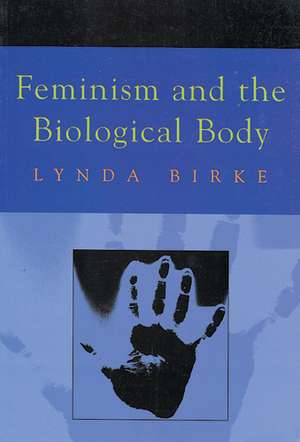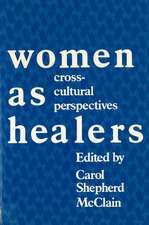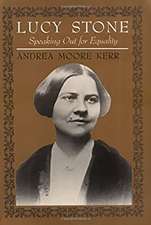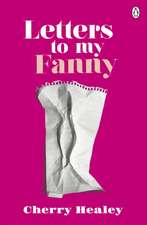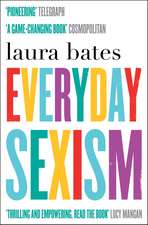Feminism and the Biological Body
Autor Lynda Birkeen Limba Engleză Paperback – feb 2000
What is a body? What are our perceptions of our inner bodies? How are these perceptions influenced?
In recent years, thinking about the body has become highly fashionable. However, the renewed focus, while certainly welcome, seems to always end at the corporeal surface. While recent sociological and feminist theory has made important claims about the process of cultural inscription on the body, and about the cultural representation of the body, what actually appears in this new theory seems to be, ironically, disembodied. If this newly theorized form has interiority, it is one that is explained predominantly through psychoanalysis. The physiological processes remain a mystery to be explained, if at all, only in the esoteric language of biomedicine.
As a trained biologist, Lynda Birke was frustrated by the gap between feminist cultural analysis and her own scientific background. In this book, she seeks to bridge this gap using ideas in anatomy and physiology to develop the feminist view that the biological body is socially and culturally constructed. Birke rejects the assumption that bodily function is somehow fixed and unchanging, claiming that biology offers more than just a deterministic narrative of how nature works. Feminism and the Biological Body brings natural science and feminist theory together and suggests that we need a new politics that includes, rather than denies, our flesh.
In recent years, thinking about the body has become highly fashionable. However, the renewed focus, while certainly welcome, seems to always end at the corporeal surface. While recent sociological and feminist theory has made important claims about the process of cultural inscription on the body, and about the cultural representation of the body, what actually appears in this new theory seems to be, ironically, disembodied. If this newly theorized form has interiority, it is one that is explained predominantly through psychoanalysis. The physiological processes remain a mystery to be explained, if at all, only in the esoteric language of biomedicine.
As a trained biologist, Lynda Birke was frustrated by the gap between feminist cultural analysis and her own scientific background. In this book, she seeks to bridge this gap using ideas in anatomy and physiology to develop the feminist view that the biological body is socially and culturally constructed. Birke rejects the assumption that bodily function is somehow fixed and unchanging, claiming that biology offers more than just a deterministic narrative of how nature works. Feminism and the Biological Body brings natural science and feminist theory together and suggests that we need a new politics that includes, rather than denies, our flesh.
Preț: 259.27 lei
Nou
Puncte Express: 389
Preț estimativ în valută:
49.62€ • 51.49$ • 41.47£
49.62€ • 51.49$ • 41.47£
Carte tipărită la comandă
Livrare economică 18 martie-01 aprilie
Preluare comenzi: 021 569.72.76
Specificații
ISBN-13: 9780813528236
ISBN-10: 0813528232
Pagini: 224
Dimensiuni: 152 x 229 x 13 mm
Greutate: 0.34 kg
Ediția:None
Editura: Rutgers University Press
Colecția Rutgers University Press
ISBN-10: 0813528232
Pagini: 224
Dimensiuni: 152 x 229 x 13 mm
Greutate: 0.34 kg
Ediția:None
Editura: Rutgers University Press
Colecția Rutgers University Press
Notă biografică
LYNDA BIRKE is a feminist biologist who has written extensively on the connections between feminism and science. She is the co-founder of two feminist groups and author of several bookps including Women, Feminism and Biology: The Feminist Challenge; Feminism, Animals and Science: The Naming of the Shrew; Rethinking Biology: Respect for Life and the Creation of Knowledge (co-edited with Ruth Hubbard); and, Common Science? Women, Science and Knowledge (with Jean Barr).
Cuprins
Acknowledgements
List of Figures
Introduction
1 Ironing out the Differences? Feminism and Biology
2 Black Boxes and Tedious Universals: Feminism and the (Biological) Body
3 Short Circuits: Reading the Inner Body
4 Spaces and Solidities: Reoresenting Inner Processes
5 Traces of Control: the Body as Systems
6 The Heart - a Broken Metaphor?
7 The Body Becoming: Change and Transformation
8 Connections: the Body's World
notes
references
index
List of Figures
Introduction
1 Ironing out the Differences? Feminism and Biology
2 Black Boxes and Tedious Universals: Feminism and the (Biological) Body
3 Short Circuits: Reading the Inner Body
4 Spaces and Solidities: Reoresenting Inner Processes
5 Traces of Control: the Body as Systems
6 The Heart - a Broken Metaphor?
7 The Body Becoming: Change and Transformation
8 Connections: the Body's World
notes
references
index
Recenzii
Lynda Birke attempts, by going below the body surface, to place the body not only in her own discipline of biology but also in feminist theory. Focusing on the inner body, primarily through metaphors, imaging, and stories told about the interior of the body, Birke explores the cultural location of the inner bodily organs and their relationship to other narratives. . . . This volume provides a fascinating and successful narrative which simultaneously embodies feminist theory and centers the female body within the discipline of biology.
Descriere
As a trained biologist, Lynda Birke was frustrated by the gap between feminist cultural analysis and her own scientific background. In this book, she seeks to bridge this gap using ideas in anatomy and physiology to develop the feminist view that the biological body is socially and culturally constructed. Birke rejects the assumption that bodily function is somehow fixed and unchanging, claiming that biology offers more than just a deterministic narrative of how nature works. Feminism and the Biological Body brings natural science and feminist theory together and suggests that we need a new politics that includes, rather than denies, our flesh.
